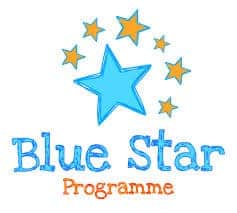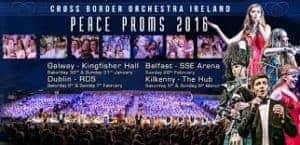Blue Star Programme, Peace Proms 2016 and Teaching Practice Tips!
Hi everyone!
Sorry I haven’t posted in a while. I will try reply to all the queries about themes etc over the next few days. It has been a busy couple of weeks. We are working on the Blue Star programme in school and so I am busy trying to become an expert on all things European! It is a brilliant programme and I would really recommend it if you have third class upwards. My class are getting a lot out of it so it is worth the bit of paper work. If you are working on the Blue Star too , the Europa for Kids website is an excellent resource! The Blue Star programme is basically an exploration of the history of the EU, the geographical aspects of the EU, cultural and creative aspects of the EU, and the institutions of the EU. You also need to celebrate or mark Europe Day in some way. The Blue Star people provide all the resources, including maps, fact books of countries, story books and posters, and a DVD. It’s an excellent way to integrate all your subjects too.
As well as the Blue Star, we had Grandparent’s Day on Friday, the Peace Proms on Saturday and I had a workshop in Galway on Sunday, so it has been all go! The Peace Proms were amazing! Again, I can’t recommend it highly enough. I will definitely be entering it again next year. The children in our school were given the opportunity to sing with a full orchestra in front of over 4000 people, and they loved it! Again, a lovely way to focus your music lessons for a few weeks.
So that is what I have been up to! I know a lot of you are on advanced teaching practice at the moment so I will just give my two cents worth of advice!. Best of luck with it all. I have several teaching practice posts on my blog so a quick search should bring those up for you.
Here are some general tips which may help:
I will begin with the first three parts of a general plan. These generally include your objectives, differentiation, assessment methods and methodologies.
The objectives in your lesson plans must be SMART. Specific, measurable, attainable, realistic and timely.
Do not have broad objectives. Keep them as specific as possible. Be explicit in your writing of objectives.
Show lots of differentiation in your plans.
It is what they will be able to achieve at the end of one lesson, not at the end of the week so do make sure they are realistic for a thirty minute or so lesson.
Assessment: The assessment section states what will be assessed and HOW it will be assessed. Methods of assessment include: learning logs, self assessment, teacher observation, teacher designed checklist, teacher designed tasks and tests.
Keep the children’s assessment folders up to date, try have a variety of assessment methods to show your inspector.
A great lesson will include a variety of learning methodologies.
Talk and discussion (every lesson)
Collaborative learning (every lesson)
Active learning (every lesson)
Skills through content
Use of environment
Problem solving


